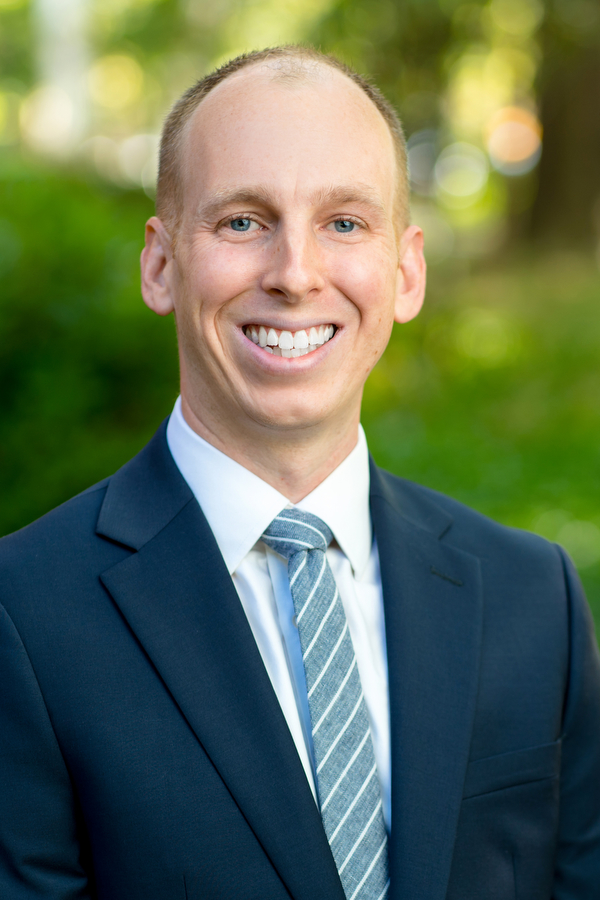Our very own Parker Trasborg was featured on WUSA9 – CBS’s Great Day Washington program that aired on April 29, 2019. Parker joined Chong Yi of The Yi Team at Fairway Independent Mortgage to discuss financial planning items to consider while buying a home/getting a mortgage. They also discussed how a mortgage can be used in specific cases as a planning tool to meet goals beyond just buying a home.
MORTGAGE AS INVESTMENT
Have you considered your mortgage as investment? Chong Yi advises different ways to pay for life’s big expenses by using your biggest asset. Using your mortgage as investment means taking advantage of your strongest asset.
GDW: Hello it’s Mortgage Monday and today we’re going to talk about how to make your mortgage work for you.
GDW: Did you know it can be used as a financial tool for some of life’s other big expenses you might encounter. So joining us now is Chong Yi of The Yi Team at Fairway Independent Mortgage and Parker Trasborg of CJM Wealth Advisors. Gentlemen, welcome to Great Day.
CHONG: Good Morning
PARKER: Thank you.
GDW: We think about our mortgage, and think *sigh* okay, we gotta pay the mortgage on this house, but you guys say there is so much more we need to be thinking about as well when we’re buying a home.
PARKER: That’s correct. So when you’re buying a home there are some other things to think about to protect yourself. One of those is life insurance. Typical rule of thumb is you want 7 to 10 times your earnings in life insurance. Say your a younger person with a couple of kids that still have to go to college, you would probably want 10 times plus. Maybe you’re closer to retirement, you don’t have any kids, then 7 times or below is an appropriate figure.
GDW: Okay so when you talk about your mortgage, and estate planing with life insurance and things like that, how can you real y make it work for you and not just the banks. Should you think about the names of the people who live in the house, the names be on the title?
PARKER: So one thing to definitely think about is just the titling in general. If you’re a married couple buying a house together, you want to make sure the house is titled “tenants by the entirety” and that is another form of protection to make sure if one of you gets sued for something they can’t take the whole house away from you.
GDW: Interesting! Say that again for people watching.
PARKER: “Tenants by the entirety” if you’re a married couple.
GDW: Okay, good.
GDW: Chong. what else should we be thinking about when it comes to our mortgage? Because we think it’s just this debt that we’re incurring. How do we use that to our benefit?
CHONG: I think you should ask Parker! He’s awesome! I don’t know if you know this, but Parker has the designation of CFP which is a Certified Financial Planner. That’s like the PhD of financial planners.
GDW: That’s why you work with him!
CHONG: That’s exactly right.
GDW: You work with some of the best people in the business.
CHONG: I’m sitting here listening to him and thinking, oh my gosh you think I would know that.
GDW: I feel like I should take notes here. I know we’re going to tell people how to reach you.
CHONG: Actually I can answer your question. Okay, so I’ve always talked about the mortgage as not debt. My parents had 16.5% on their mortgage that I grew up in. So for them, they always talked about paying it down. But in actuality if you think about it what you maximum return on investment, so if you’re paying 4%, which is where we are now (better than where we were last time), after tax benefits and all the stuff that we’re talking about you’re really paying at 3%. I look at that and think can you make more money on debt at 3%? Absolutely. And I would say give it to Parker because he’s going to give you a bigger return on investment. So the money that you’re going to put into your mortgage I always think of it as a tool to get you into a place where you can have this huge asset. For instance, in Arlington houses are going crazy, and in a lot of other parts of our area. I’m huge in using that mortgage as a tool to buy that asset, as opposed to treating it as debt.
GDW: Assets like? Using that mortgage as a tool for not just physical assets, but for college education or something. I mean you want that house that your family is going to be in, but you still know that you children are going to have to go to college. How can you use your mortgage to help that?
PARKER Chong and I had a recent case where the couple wanted to cover their kids college education no matter what. They had already spent all of their education savings on private high school. So what Chong was able to structure for them is a cash out refi of their current home. Take those proceeds out. They were able to pay off the student loans and the parent loans that they already had in place, and going to be able to cover the last year of college. At the same time, it’s going to lower their monthly payment and they will have the payments all done by the time they retire. So it’s a pretty good deal for them.
CHONG: Absolutely.
GDW: That sounds encouraging for some people. You can also help people use life insurance in addition to their mortgage as a tool to help pay for education. Use their mortgage as investment.
PARKER: Not necessarily to pay for education but it’s just a form of protection so if I were to get hit by a bus I don’t want my wife to cover the whole mortgage by herself. So she would have some proceeds there.
GDW: Oh, okay. Any additional advice for people who may be at risk for being house poor, or they feel like they’re in a situation where they think “oh my gosh I’m house poor and I’m not sure how I got here”.
CHONG: I think for starters I always go back to the “don’t think of your mortgage as debt”. Reduce your payment as much as possible. To the point where it’s almost like I want to borrow as long as I possible can with the lowest payment possible. At the end of the day, if you want to save for that occasion when you can’t make the payment you want to minimize your payment. Also the extra money that you’ll be saving you can turn that into assets for you. Once again, give it to Parker to get a good return for you.
GDW: Sounds like we need an expert to figure this out.
GDW: That’s right, there are so many options that we didn’t know about.
GDW: Parker, Chong, so great to have you join us.
–
View the video clip “Mortgage Monday: Tips to make your home mortgage work for you” at WUSA9.


Social Media